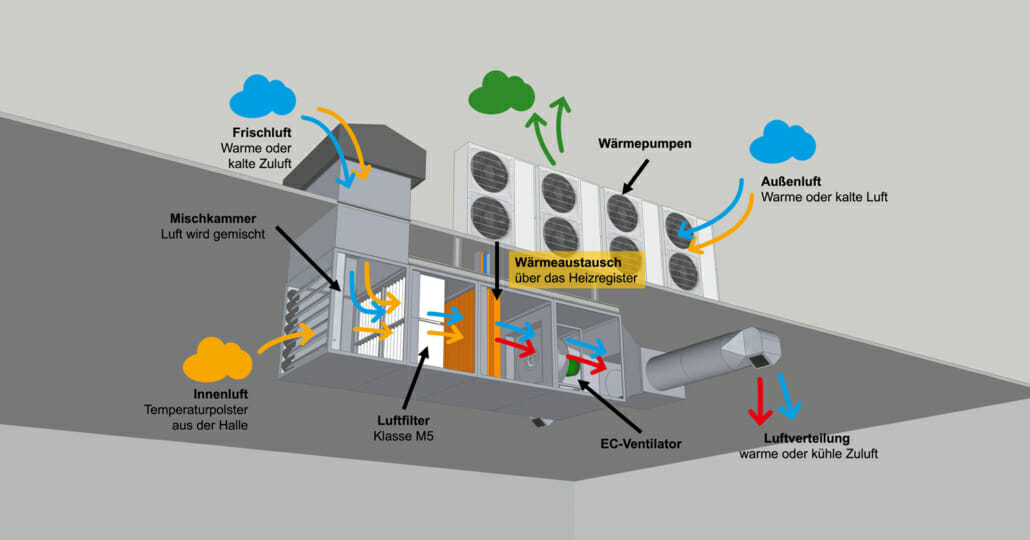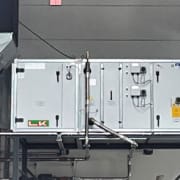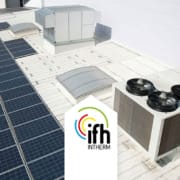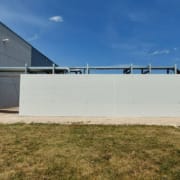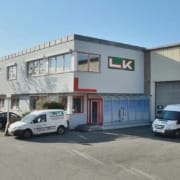Hall heating with a heat pump – when is it worthwhile?
Understanding hall heating / heat pump
What is a heat pump?
A heat pump is a heating system that extracts heat from the environment and uses it for heating. It is energy-efficient and environmentally friendly as it uses renewable energy sources. Heat pumps can both heat and cool and are particularly low-maintenance.
Various hall heating systems
There is a large selection of hall heating and ventilation systems. These are specially tailored to the needs of various industrial applications. Here is a brief overview of various systems and technologies:
Ventilation systems
Ventilation systems regulate the exchange of air between inside and outside. Equipped with heat recovery, they can recover up to 90 percent of the heat from the exhaust air. The result is a continuous exchange of air at a constant temperature!
Warm air heater
Warm air heaters, on the other hand, blow warm air directly into the room to be heated. In this way, they ensure rapid and even heat distribution.
Airlocks
The importance of door air locks should also not be neglected: with frequently opened hall doors, they prevent the ingress of cold air and also keep large halls constantly warm.
Hybrid heating systems
However, modern heating systems rely on hybrids: different heating technologies such as condensing boiler technology, hot air generators and heat pumps can be combined with each other. This achieves maximum efficiency and environmental friendliness.
Heat pump types for hall heating systems
Air-to-air heat pumps
Air-to-air heat pumps extract heat from the outside air and transfer it directly to the room air. They are often used as split air conditioning units or in ventilation systems with heat recovery. These systems do not require radiators or underfloor heating as the heat is distributed via ventilation slots. They can recover up to 90% of the heat from the stale room air – very efficiently!
Air/water heat pump
Air-to-water heat pumps extract heat from the outside air and transfer it to a water circuit. They can be used more flexibly and can also be installed in existing buildings. They also work efficiently at temperatures as low as -20°C. They can also be combined with conventional radiators or underfloor heating systems. Compared to other heat pumps, they have low investment costs.
When does a heat pump make sense?
Heat pumps are useful in well-insulated halls. They are suitable for utilizing waste heat and for air conditioning and dehumidifying the air.
They are also ideal for a new hall or comprehensive refurbishment, as they meet the requirements of the new legislation(GEG 2024).
In combination with renewable energies such as photovoltaic systems, heat pumps can further reduce operating costs.
Advantages and efficiency
Heat pumps offer numerous advantages:
- Maximum energy efficiency: Modern heat pumps cover the majority of their energy requirements using virtually free ambient energy.
This leads to a reduction in energy costs. - Environmentally friendly: As a regenerative system, heat pumps use renewable energy and help to reduce CO2 emissions.
- Versatility: They can heat as well as cool and dehumidify, which makes them attractive for many industrial applications.
- Eligibility: Heat pumps meet the requirements of GEG 2024 and are therefore eligible for state subsidies.
Environmentally friendly and sustainable heating solution
Heat pumps are a sustainable heating solution as they use renewable energy and reduce CO2 emissions. An important aspect of this is the use of environmentally friendly refrigerants.
Refrigerants are substances that are used in heat pumps for heating and cooling. They transfer heat from the environment into the heating system.
Refrigerants such as R290 and R32 have a low global warming potential and help to reduce the environmental impact.
This makes heat pumps an even more environmentally friendly choice.
Efficient heating systems are designed for high efficiency. By using condensing technology and/or heat recovery, the systems are not only energy efficient but also help to reduce the environmental impact.
There are also CO2-neutral solutions that do not use fossil fuels at all and only use the available outdoor and indoor air. Find more information here.
Choosing the right hall heating
When choosing the right hall heating system, the specific building characteristics are decisive.
These include the size and height of the hall, the quality of the insulation and the existing infrastructure such as gas connections and the electricity grid. The usage requirements are also important. These include the required temperature as well as the heating and cooling requirements. Air quality also plays a key role.
Another key aspect is energy efficiency. It is important to choose systems that offer a high level of efficiency and enable the use of renewable energies. By law, heating systems must obtain at least 65% of their energy from renewable sources.
Heating and ventilation systems must be adaptable in order to adjust optimally to changing conditions. This guarantees maximum efficiency and performance. Therefore, customized solutions are often necessary to meet the specific requirements of each building. Professional advice can help to find the right solutions that perfectly combine energy efficiency, economy and comfort.
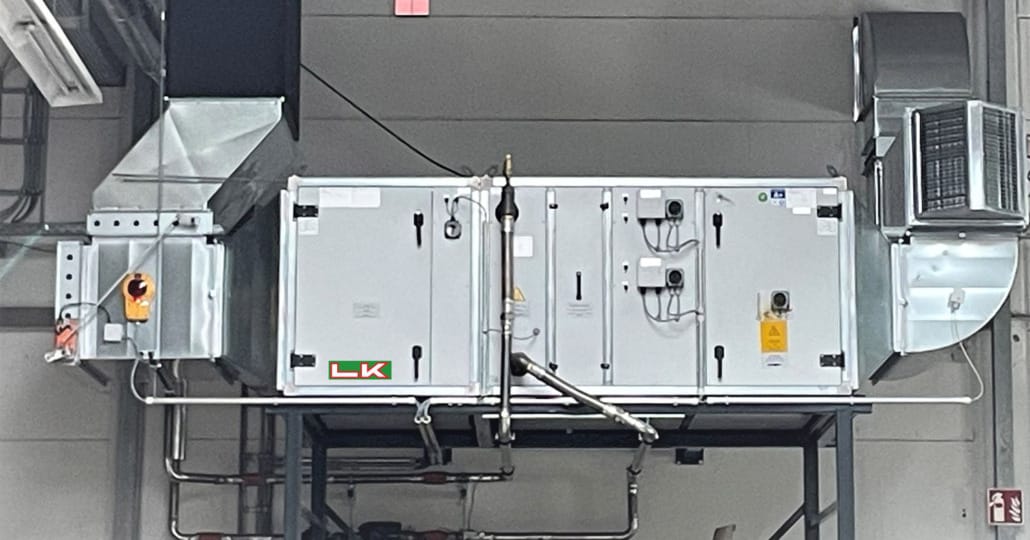
With the LK warm air generator GCS (Green Climate System) in combination with heat pumps, warehouses and logistics halls can be heated and cooled without fossil fuels
Conclusion: Is a heat pump the right choice for your hall?
Choosing the right hall heating system can be crucial to reducing your operating costs while minimizing your company’s environmental footprint.
Modern heat pump systems offer an excellent solution that not only meets the strict requirements of GEG 2024, but also offers the option of using renewable energy.
Imagine a heating solution that is efficient, economical and environmentally friendly – without the use of fossil fuels, but through the intelligent use of available air.
This is not a dream of the future, but a feasible, sustainable innovation with which you can heat your hall in a CO2-neutral way.
Are you ready for hall heating with a heat pump? We will be happy to advise you. Benefit from 160 years of experience and an individual solution that meets your requirements.


